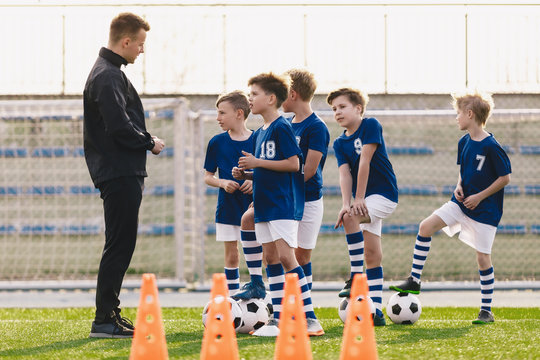For Parents
Encourage Your teenage child to be More Competitive and Successful
Admin Aug 24, 2022 11:41 AM

TAGS
“Competition is great... as long as it's in a healthy way. It is what one must strive for in order to improve.” Christine Lahti
According to the heads of the world's top educational tutoring programme, competition is the most important component in achieving success. Every parent wishes for their child to be intelligent and successful, and however, many people differ about which criteria make this feasible. Parenting styles have evolved throughout time, and some think focusing on participation rather than effort is more significant.
Youngsters who compete "learn crucial social skills through engaging with other children and the value of hard work and the development of self-esteem and self-efficacy." It's a safe practice for your youngster to learn to work as part of a team. Many cooperative games educate children on how to solve problems as a group and work together for the greater welfare of the group.
The idea is to create an environment that encourages healthy competition. Take attention to how your children react to competitive circumstances because it's not necessarily something they can pick up on or discuss with you.
Children can develop a variety of desirable attributes by actively participating in tournaments. On the other hand, children may experience stress and disappointment due to unhealthy competition.
Even child experts advocate that youngsters engage in healthy competition. But if you're still afraid to enter your child in tournaments because you're concerned about the consequences, here are a few ways to tell the difference between healthy and unhealthy competitions.

If your children are participating in a healthy competition, they will
- ask to join in the activity again
- learn new skills and a desire to develop themselves
- be able to win and lose graciously
- be enthusiastic about the competition
- have increased self-esteem and confidence
- Have a good time and focus on participating rather than winning.
If your children are involved in unhealthy competition, they will:
- Refuse to participate in the activity;
- Express outright that they do not want to participate;
- Pretend to be ill to avoid participating;
- Show signs of depression, anxiety, difficulty sleeping, or loss of appetite—all red flags that need to be addressed. Most competitive kids experience some nervousness before a major game (or test), but they shouldn't be overly concerned that it interferes with their other activities.
What are the advantages of healthy competition for your child?
Inspires children- competitions are a fun method to keep your child engaged and motivated. Regardless of the ups and downs, their desire to improve keeps them going.
Encourages self-assurance- Participating in competitions boosts a child's self-esteem and builds confidence. They can overcome unpleasant feelings such as fear, worry, and others by participating and interacting regularly.
They become more goal-oriented- Contests or competitions establish a goal for winning and encourage youngsters to work hard to achieve it. As a result, these children develop into focused persons.
Gets them ready for the real world- In today's world, moving up the value chain is impossible without facing competition. You will encounter competition for everything from a spot in a reputable college to a decent career. As a result, school-level competitions would be a fantastic place to start for him.
Life takes on a new dimension- Children are naturally curious and excited, and competitive meetings provide a fantastic venue for them to showcase their abilities and improve their interactions with professors. As a result, teachers and students can collaborate as a team, making even the lives of introverts more engaging!

Tips on how parents can encourage healthy competition in children and raise them to succeed in an increasingly competitive world.
Assist them in determining the appropriate goal- You can't expect your child to win all of the time, so make sure that failures don't deter him. Parents can assist their children in setting realistic contest goals, and exceeding these objectives will keep them from becoming discouraged.
Challenge them to compete with themselves- Explain the value of practice and perfection to your children. It is always better to compete with oneself rather than with others, which will motivate him to work harder and do better than usual.
Rather than comparing, admire their efforts- Parents should never compare their children to others because this can cause them bad feelings and an inferiority complex. Encourage your youngster to do his best and value even the tiniest accomplishments.
Recognize Your Child's Personal Preferences and Strengths- Find out what motivates your child. Every child has a different reason for participating in sports and competing. Some people are just interested in winning, while others are more interested in having fun, acquiring new abilities, or simply spending time with their friends. To find out what motivates your child, ask them questions like "Was it fun?" "Did you win?" "Did you learn anything?" after games and practices. In general, the question that the youngster responds to with the most zeal is the one that reveals their genuine reason. For example, if a child is ecstatic to tell you how much fun he had doing an activity but isn't as enthusiastic about telling you what he learned, his motive is more likely to have fun.
Assist your child in developing self-confidence in their abilities- Confidence is a crucial emotion in competition; many children don't compete because they aren't confident in their athletic ability. Talk about the worries that your child has and try to find a solution and work towards the desired goals. Maintain a cheerful attitude around your child, praising and encouraging him in good and difficult situations. Even if your child isn't exceptionally athletic, praising their hard work and effort might help them acquire confidence. When a child is confident in their talents, they will naturally become more competitive.

If your child is upset, switch to a different activity- Some kids aren't naturally competitive when it comes to sports or some other activities. If this is the case with your child and you've attempted (unsuccessfully) to establish a competitive mentality, consider switching sports or waiting a few years to see if their level of competition changes. As children grow older, they become more competitive by nature. If your child is unhappy and uncompetitive, consider switching them to a more interesting activity, such as music or dancing courses. Although having a competitive child can be beneficial to their future aspirations, it is even more crucial to have a happy child and enjoy their activities.
Encourage your child to develop personal goals for themselves- Teaching your youngster that winning or losing doesn't matter can help them feel less valuable when they lose. Instead of competing against other players, please encourage your child to compete with himself. This teaches valuable life skills, but it also prevents a child from becoming overly competitive. Talk to your child about setting personal performance objectives, and check in with them and their coach regularly to see how they're doing. Internal rivalry can be a tremendous motivator for your child, helping them build self-confidence and enthusiasm in activities off the field.
Playing family games might help you create a healthy environment in your house- Even basic card or board games, such as Monopoly or Old Maid, can foster a constructive competitive environment where participants play the game strategically and desire to win, but not undermine other players or become enraged when someone else wins.
Set a good example for your child by acting responsibly- Play the board game to win, but don't be a spoiled brat who throws a tantrum when things don't go their way, ruining the experience for the other players. Children will imitate what their parents do, so take advantage of this opportunity to foster healthy rivalry. Teach them that the most important thing is that you learnt something and had a good time together, not that you won the game.

Encourage a fair amount of sibling rivalry- Sibling rivalry is unavoidable in families with many children. Because they have always had someone to compete against, children with siblings are inherently more competitive in life and sports. Encourage each youngster to perform their best from an early age to teach them what healthy competition looks like. Encourage children to complement their siblings on their accomplishments. Children without siblings are at a natural disadvantage in competition; therefore, they look for other children to establish and exhibit healthy competitiveness with, such as friends, neighbours, or relatives.
Praise children for their efforts rather than categorising them as intelligent- This may sound contradictory in boosting confidence, but there is research behind it. A research led by Carol Dweck at Stanford University called Growth Mindset has proved that how you praise your children has a substantial impact on their performance. Students who are commended for their intelligence have a modest drop in performance on difficult math exams. Meanwhile, pupils who are commended for their efforts experience significant gains in their grades. So, what should a caring parent do? Instead of praising your children for their intelligence or good qualities, praise their effort and link it to a positive outcome. Instead of stating, "I am happy with your A in arithmetic; you are so good at math," say, "I am proud of the A you received in math." "I am very proud of how hard you are working in math, and I can see it is paying off in your results," you can say.
Focus on the important things- Many parents concentrate their efforts on assisting their children in memorizing formulas, words, or dates. To build their memorization habits, children should perform much of this independently. Parents discuss and analyze more important facts to assist the child in acquiring a nuanced perspective. For example, suppose the topic is Pearl Harbor. In that case, it is more vital for a parent to help their child grasp the significance of this event on the result of World War II and present international relations than it is for the parent to help their child memorize that it occurred on December 7, 1941. These discussions with your children are also far more entertaining than merely pounding facts into their heads.
The single most significant ingredient in success is a failure- Most successful people learn the hard way on their path to winning, and they want to spare their children from the same difficulties. What's the result? Many youngsters are now terrified of failing, whether because they want to live up to their parents' expectations or don't know how to deal with it. This anxiety may discourage children from doing difficult tasks, limiting their growth and chances of success. You can tell them about your failures and how you learnt from them, developed from them, and even transformed them into successes in some cases. Second, you must allow them to fail for them to learn how to do it, recover, and grow as a result of it. They won't dread failure by the time they go to college because they'll have failed so many times on their road to a successful and happy life that they'll regard it as a necessary part of the process.
Competitions aid in the understanding and developing of social skills and values in children. Participating in group games will inspire kids to work with their teammates to achieve success. Winning these games boosts their self-esteem while encouraging kids to practice, research, and improve their talents. Even if they lose one of the tournaments, they will be able to learn from their mistakes and give their best effort the following time around.
Search
Latest Blogs

Exploring Opportunities in Emerging Engineering field
Admin
Dec 14, 2024 05:18 PM

Navigating College Majors
Admin
Sep 25, 2024 04:04 PM

Tools for Measuring Strengths For Career
Admin
Sep 25, 2024 03:27 PM
Interested in getting latest updates?
SUBSCRIBE


















